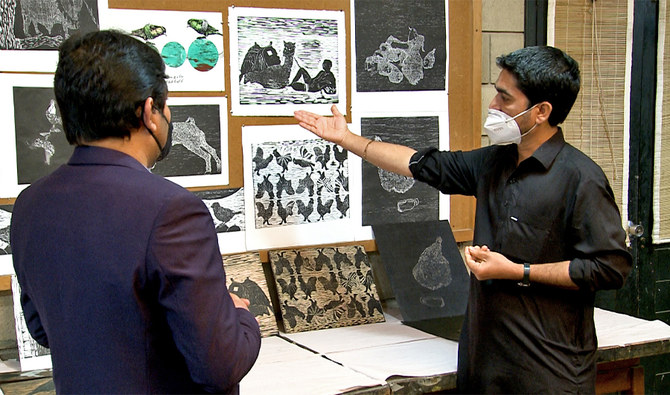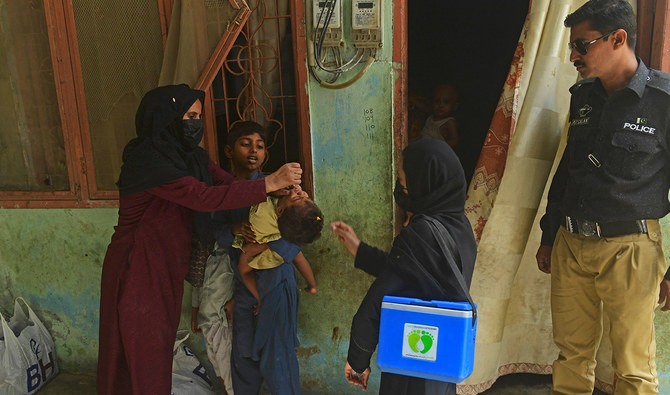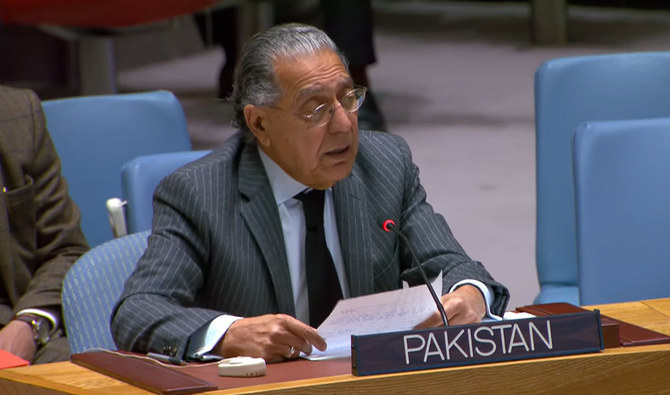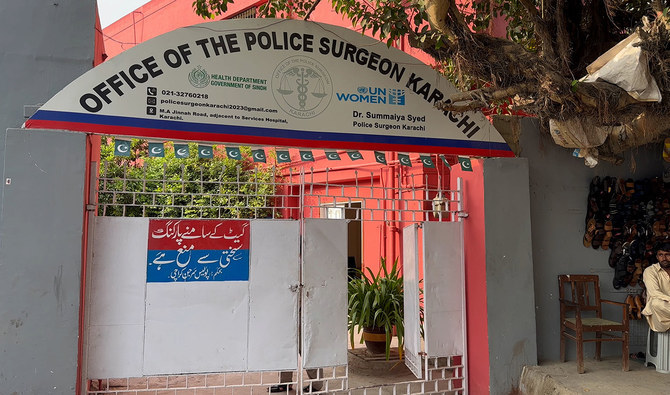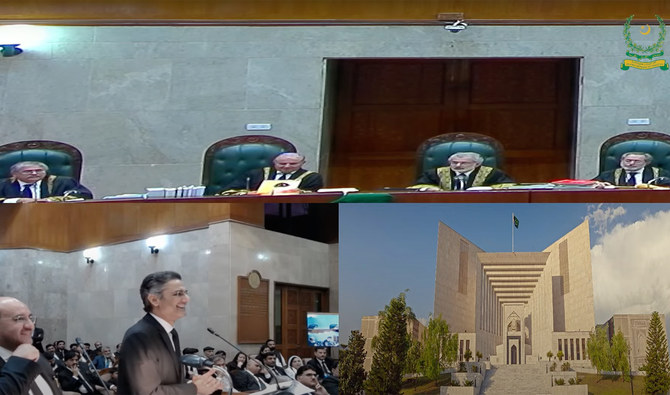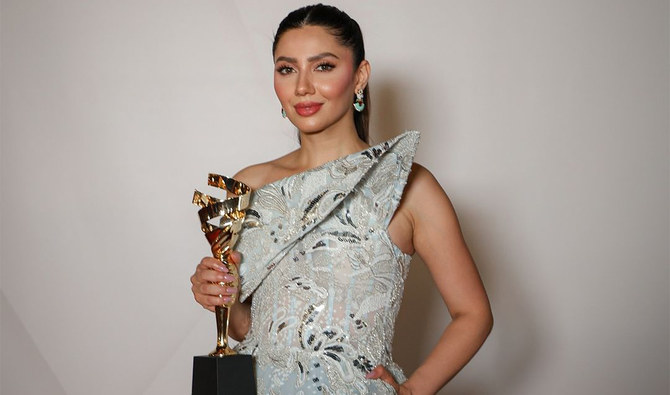KARACHI: A former canteen helper at a prestigious art school in the port city of Karachi says it was the many women that came into his life at difficult moments who had encouraged him to pursue art and eventually, today, become a successful artist.
It all began in 2000, when Abdul Muhammad, 32, was a young boy collecting wood on a seashore and a group of girls from the Indus Valley School of Art and Architecture struck up a conversation with him. One of eleven children of a poor widow, Muhammad never expected what would come next: the girls got him a job as a helper at the canteen of their university where he went on to work for nine happy years, becoming a favorite of many teachers and students.
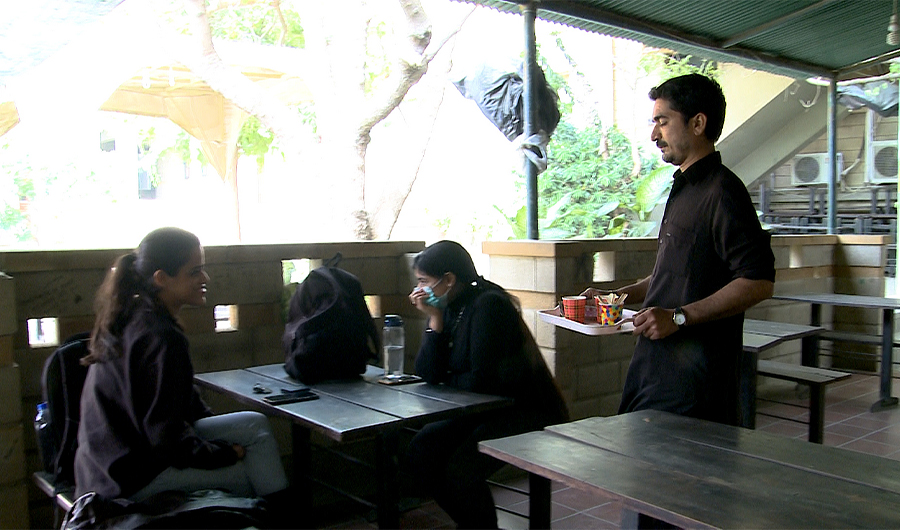
Former canteen helper-turned-printmaker Abdul Muhammad, 32, at the canteen at the Indus Valley School of Art and Architecture in Karachi, Pakistan, on January 23, 2020 (AN Photo)
But then things took a turn for the worst: Muhammad fell ill in 2008 and had to take a week off. When he arrived back at work, he was told someone else had been hired in his place.
“I had tears in my eyes, and I was crying,” Muhammad told Arab News in an interview last week, describing the moment when he walked himself out of the university after losing his job. A teacher, Adeela Suleman, saw him weeping and asked what had happened.
When he said he had been fired, she hired him as a helper at her office and paid him out of her own pocket for four years.
“Several women at different stages have helped shape my life,” Muhammad said. “Where I am today, it is because of the help extended by women who were not even related to me.”
When an assistant’s position opened up at the university’s printmaking department, Suleman recommended Muhammad for it. That is where his life changed forever, he said, under the tutelage of another woman, his teacher Norria Sabah.
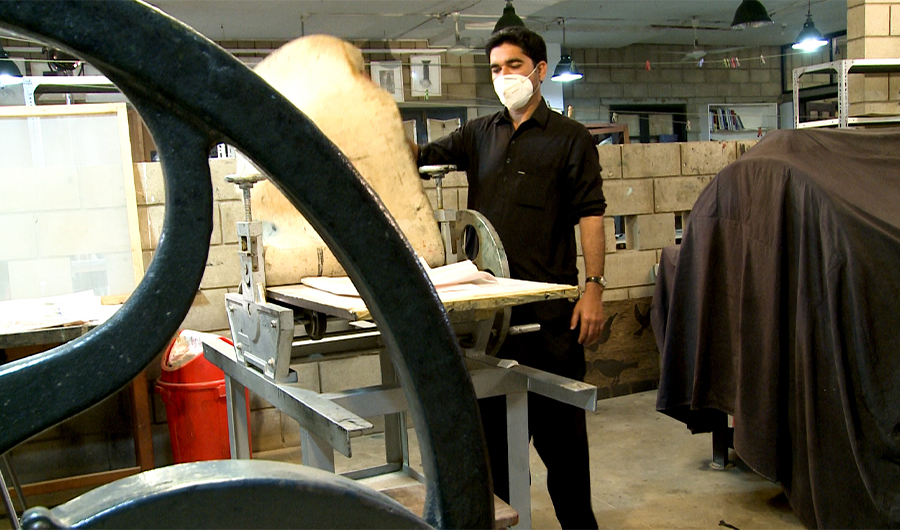
Former canteen helper-turned-printmaker Abdul Muhammad, 32, busy at work at the Indus Valley School of Art and Architecture in Karachi, Pakistan, on January 23, 2020 (AN Photo)
“I had animals at home, I had birds, hens and a goat, which I had been raising since my childhood and spent most of my time with,” Muhammad said, speaking about the inspiration behind his designs. “So, I made my animals part of my work.”
Then another woman, Scheherezade Junejo, a drawing teacher, purchased his work and told him he had six months to prepare for a solo show. In 2018, Muhammad took his mother to his first exhibition at Karachi’s Full Circle Gallery. With the money he earned from the show, he sent his mother to perform the Umrah pilgrimage in Saudi Arabia — a lifelong dream.
“My entire work was sold,” he said.
After the show, Suleman asked Muhammad how he felt.
“‘Abdul, how happy do you feel today?’ I told her; I am very happy with my life and my work. See, Allah took me from where to where.”
Since then, Muhammad’s artwork has been displayed at shows in China, UK and UAE. But he never forgets his roots. Sometimes, he said, he still visits the Indus canteen where it all began.
“My beginning was from here ... I have not forgotten those memories,” the artist said.
“I still sometimes come here and make myself tea and omelet,” he said as he took the last sip of his beverage and then got up to leave the canteen for the printmaking department.



